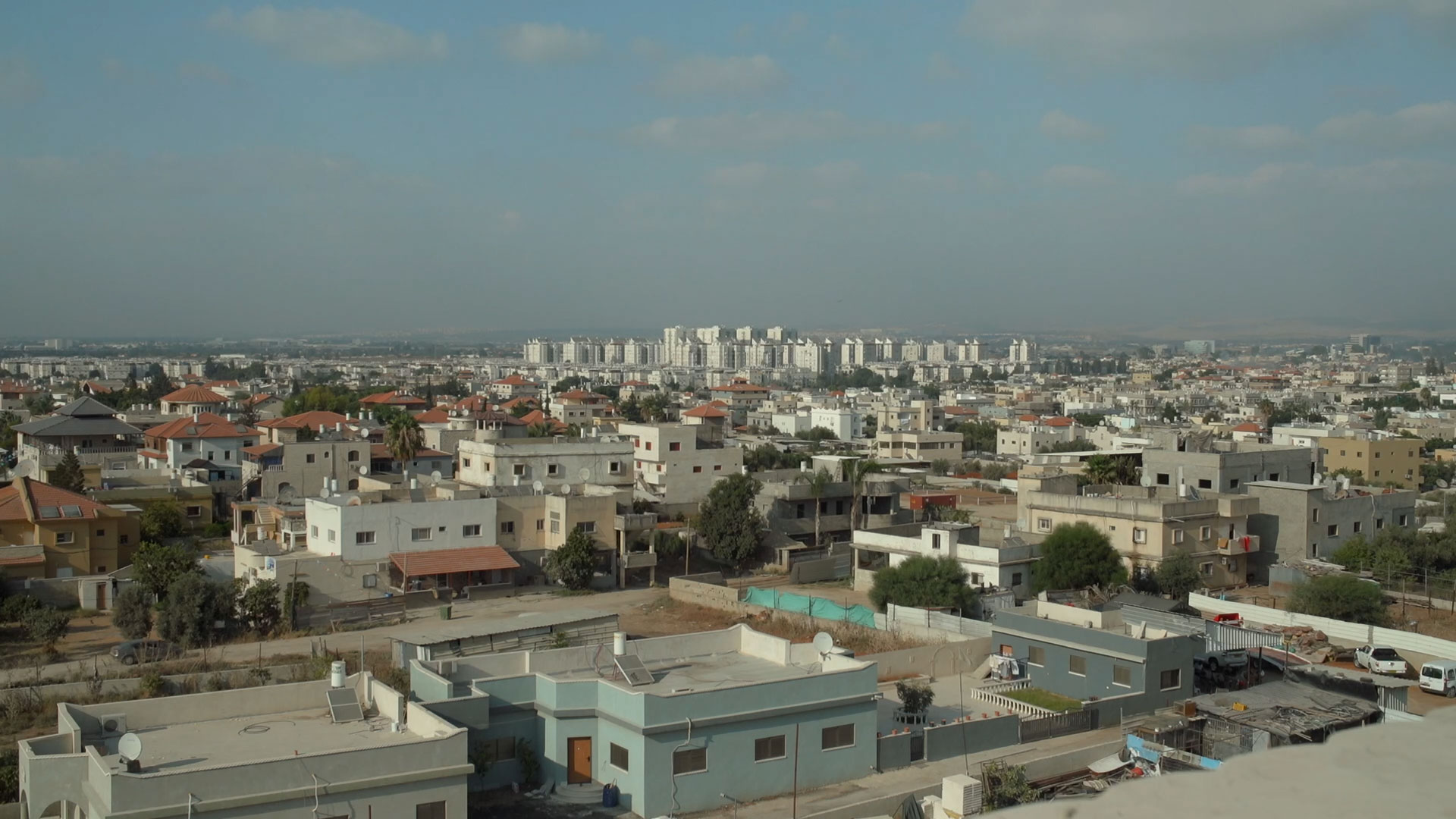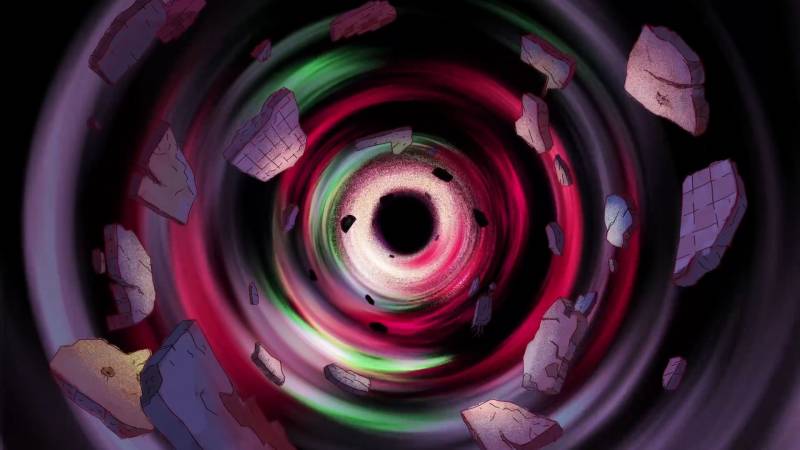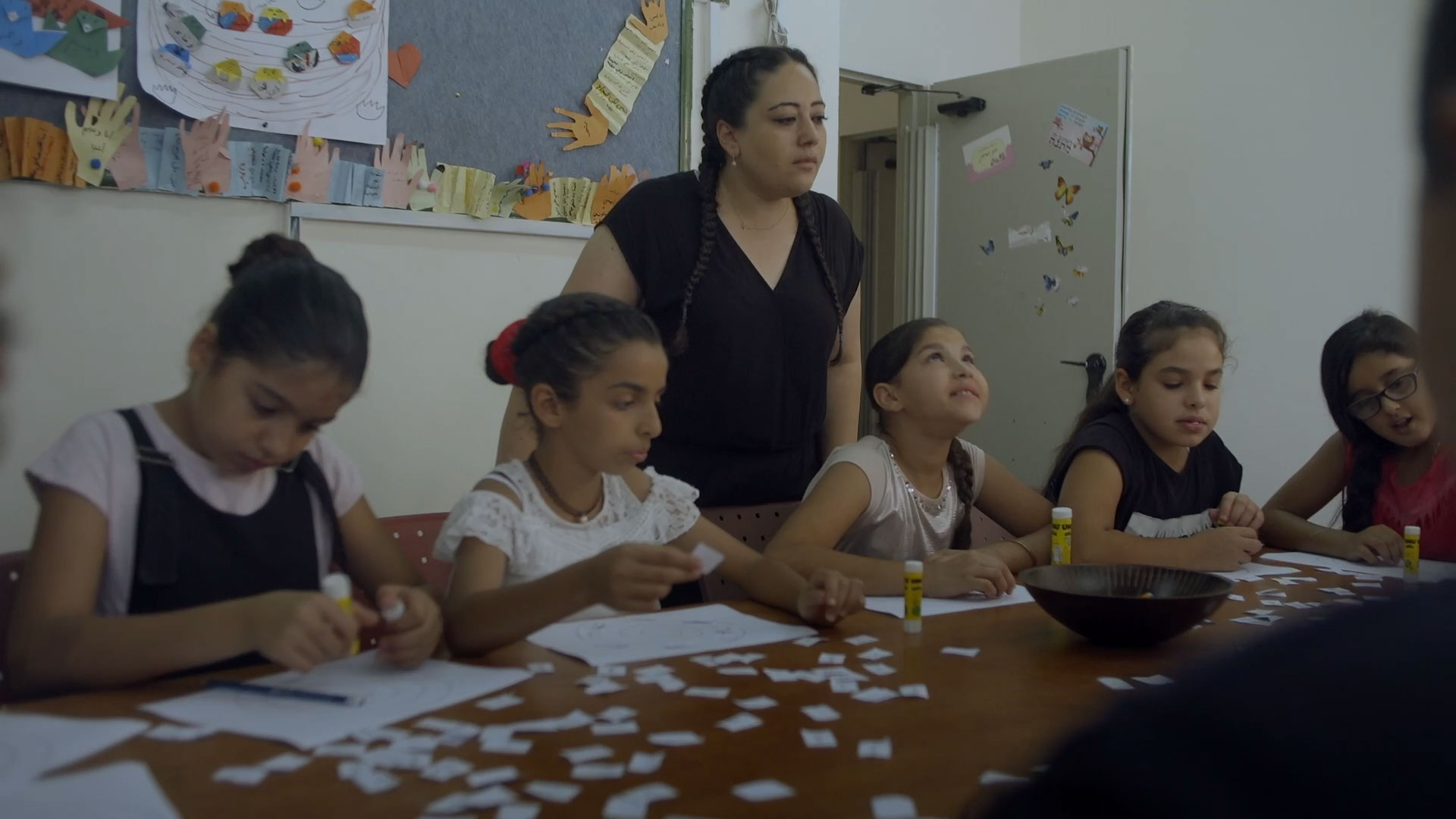Lydda does not appear on a contemporary map of Israel. You will find Lod, though, in the center of the country, 14 miles from Tel Aviv and 29 miles from Jerusalem in the opposite direction. The remains of the Christian martyr St. George have resided in this place for many centuries, while the modern international airport dates to the mid-1930s.
Lydda connected Palestine with the Arab world until 1948, we’re informed at the beginning of Rami Younis and Sarah Ema Friedland’s documentary Lyd. In fact, Lyd herself (Palestinian actress Maisa Abd Elhadi) narrates the film (in Arabic, of course), which receives its Bay Area premiere in the San Francisco Jewish Film Festival Sunday, July 28 at the Vogue Theater and Tuesday, July 30 at the Piedmont Theatre in Oakland.
The creative decision to “cast” Lyd as a character recounting her story has a slightly fanciful aspect, underscored by animated sequences that conjure life in previous eras. But the filmmakers’ decision to make what they call “a sci-fi documentary,” that in part imagines how the city would have developed without Israeli occupation and resettlement, is nonetheless grounded in reality.
This is not the first film to unearth the Nakba, when approximately 750,000 Palestinian residents were exiled and hundreds killed during the war triggered by Israel’s declaration of independence. Israelis still celebrate their victory, of course, and their then-leader David Ben-Gurion, while Palestinians record the date as the beginning of their national tragedy.

Al Nakba: The Palestinian Catastrophe of 1948 screened at the 1998 San Francisco Jewish Film Festival, where it played like a corrective to the mythic history that Israelis and American Jews tell themselves. The shrines that displaced Palestinians made of their house keys, dreaming of the day they would return, still stick with me.



